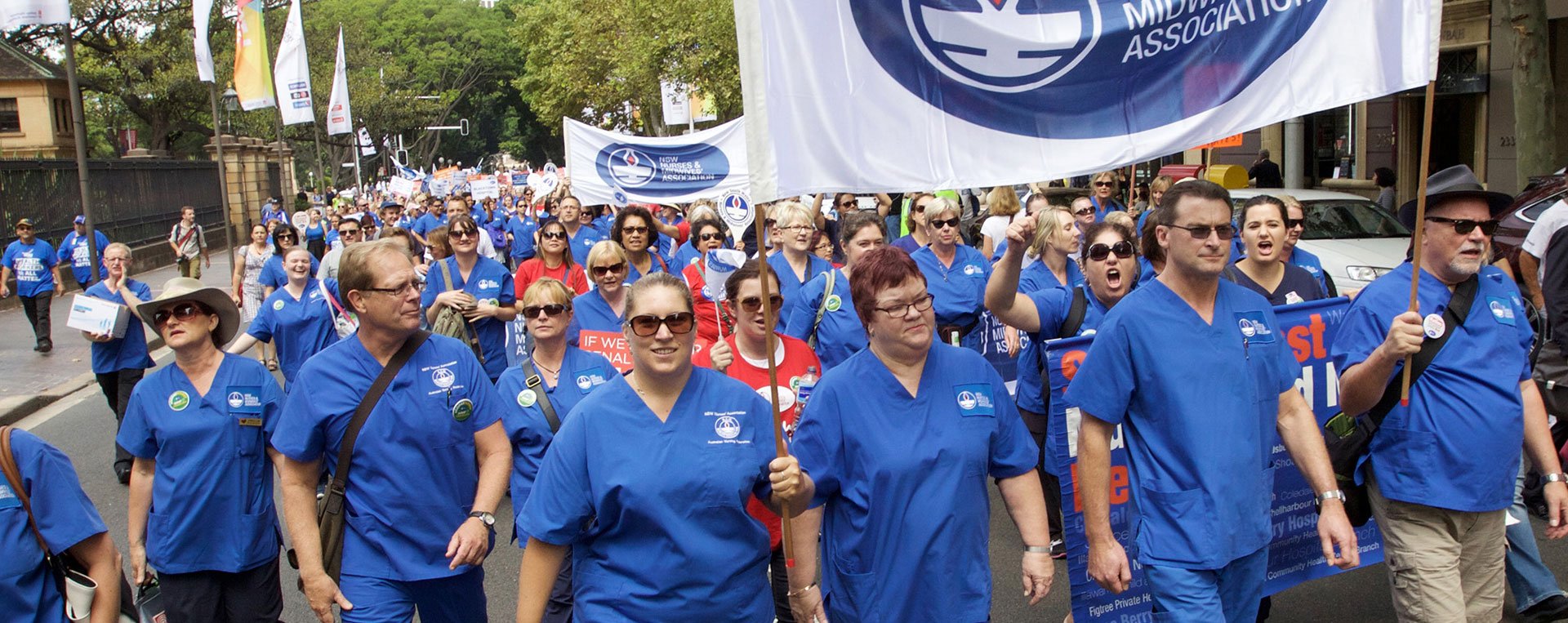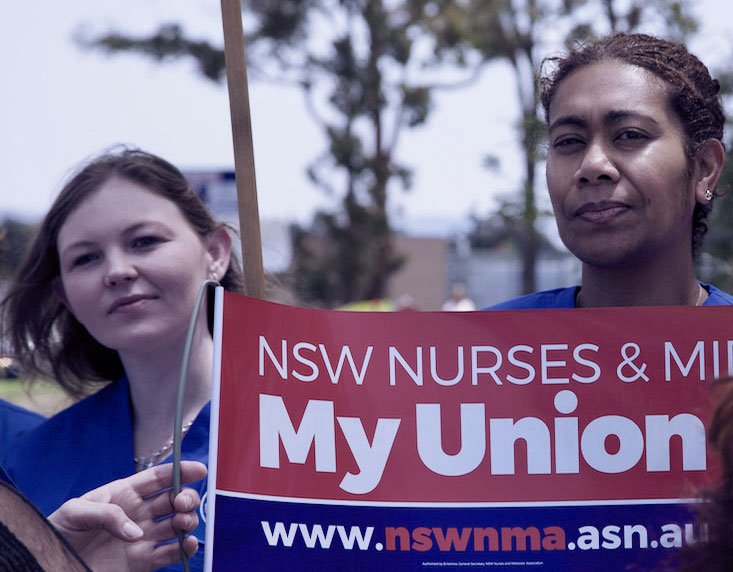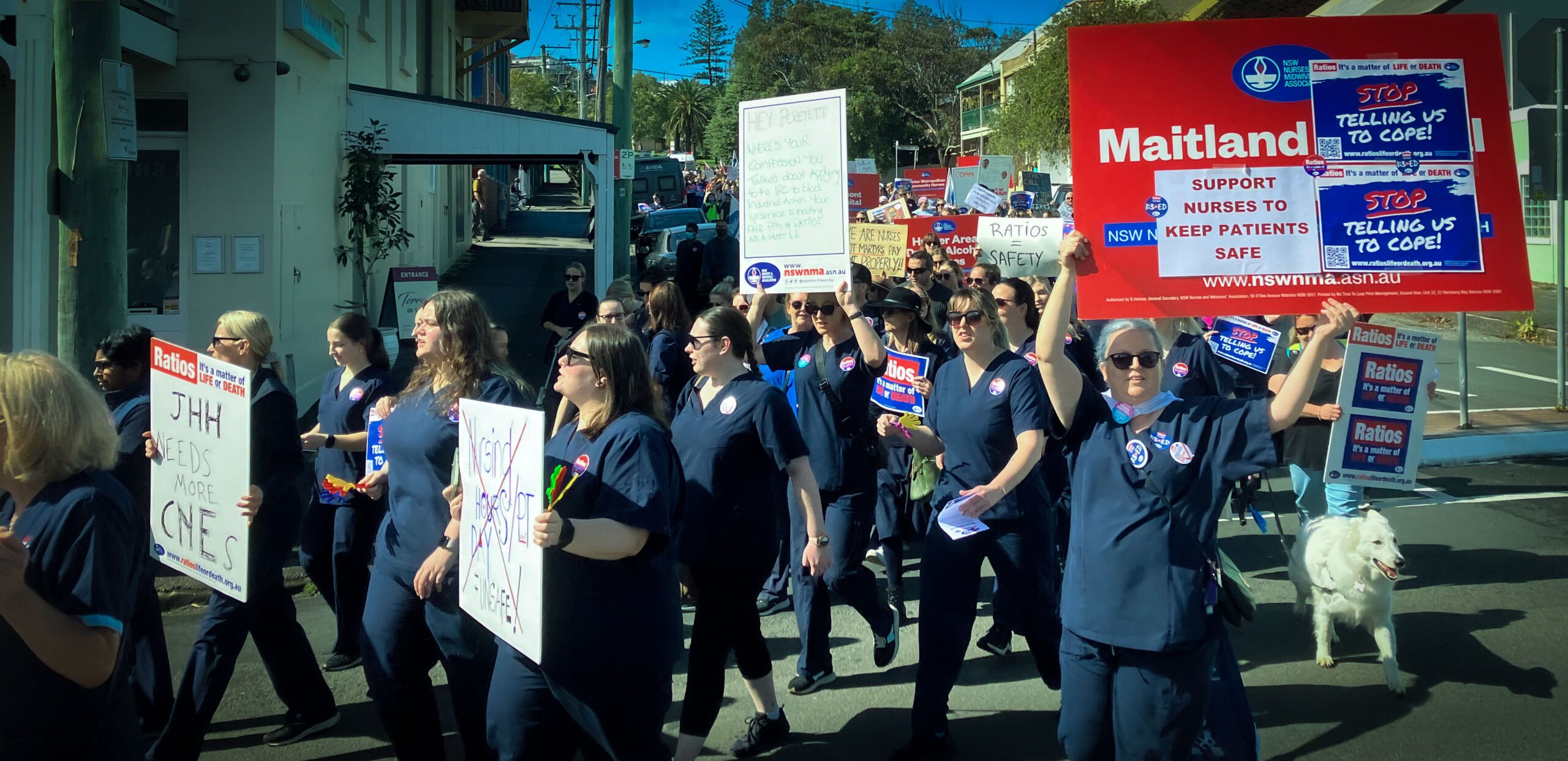Excessive workloads, fatigue and bullying continues to plague a high proportion of nurses and midwives throughout New South Wales, despite efforts to escalate issues and support each other.
A recent NSW Nurses and Midwives’ Association (NSWNMA) member survey shows widespread issues remain, with 93% of respondents experiencing verbal aggression or threats in the last six months and more than half suffering physical intimidation on the job.
As part of national Safe Work month, the NSWNMA has continued its campaign to ensure every nurse and midwife is safe at work but NSWNMA General Secretary, Brett Holmes, concedes the ongoing incidences and impacts on nursing staff are sobering.
“Members have told us repeatedly the current public health reporting systems are inadequate and can be manipulated, or worse, managers instruct them not to report issues, which is a breach of their professional obligations as nurses or midwives,” said Mr Holmes.
“Vital changes to transparency around reporting and support from management are urgently needed. Nurses and midwives are highly regarded community members, they deserve better and serious improvements must be introduced – no one should feel unsafe in the workplace.
“Behavioural conditions, caring for patients who are distressed or afraid, and unsafe staffing levels were identified by our members as the main risk factors contributing to incidents of work related violence and aggression, shift after shift.
“From Narrandera in the state’s south to Ballina in the north and everywhere in between, nowhere is excluded from these issues. Our mental health nurses at sites such as Cumberland Hospital in Sydney’s west continue to be treated like punching bags, yet issues like working in isolation or faulty personal duress alarms still remain.
“It’s become a very sad situation and one the Berejiklian government must start taking responsibility for, otherwise nurses and midwives will continue to walk away from the profession.”
NSWNMA Blacktown Hospital Branch president, Christine Boxsell, acknowledged a new incident reporting system was being trialled in Western Sydney but said it was just as time consuming as the old version.
“We know hospital staff underreport issues, not just at Blacktown, and that’s something we need to change,” Ms Boxsell said.
“We need a system that’s simple to navigate and input data. Many staff often don’t report verbal abuse because they don’t think it’s worth the time, but ongoing verbal abuse from patients or family members of patients can take a toll.
“We all rely on each other to protect ourselves in the workplace, that’s the reality of where things are at. Legislating some better protections in NSW would be good too, other states have them.
“We also need to address the issue of elderly dementia patients. There needs to be a better model of care, so we can look after these patients in the way they deserve. A more holistic approach to care for them would be ideal because we’re letting them down currently.
“Today, we wear grey armbands in solidarity, in the hope that we never have to wear black ones.”
Members of Blacktown Hospital branch will gather in their own time outside the emergency department entrance this afternoon to discuss issues regarding workplace violence and the need for urgent widespread change. They will be wearing grey armbands to highlight their concerns.
Download this release: Nurses and midwives bear brunt during Safe Work month








